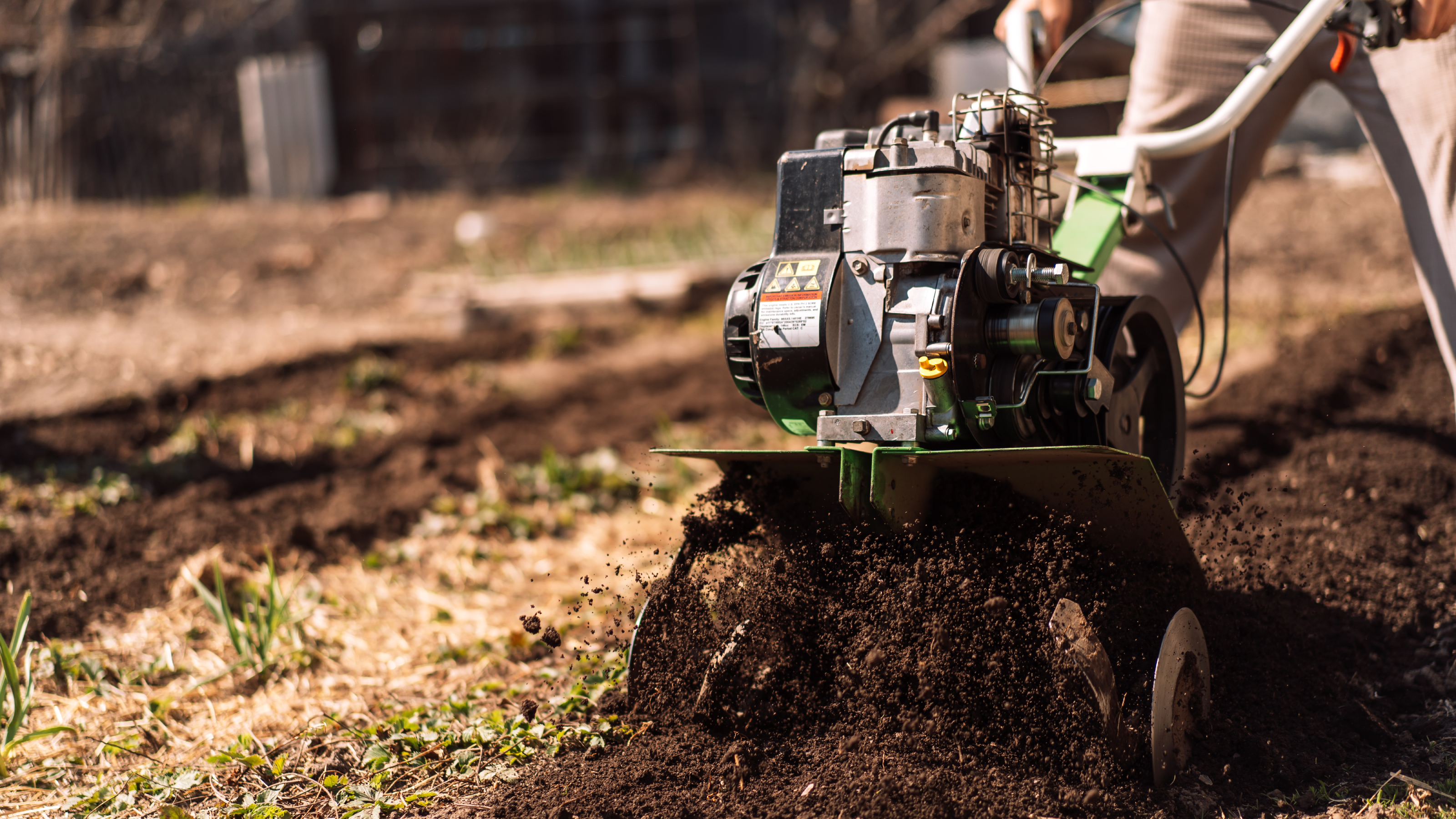Tilling Advantages Vs. No-Till Advantages
Our gardening experts weigh the pros and cons of till vs. no-till gardens based on their own experiences with both methods. Find out which one is best for you.

The benefits of no-till garden beds are numerous. If you want healthier soil, less erosion and runoff, reduced reliance on fertilizers, and a big chunk of free time, stop tilling your garden. A no-till garden will save you time, energy, and money, and will promote better plant growth too. Tilling your soil also has its benefits. It changes the soil's porosity and texture, incorporates organic matter quickly, and helps plants establish full root systems quickly.
There is quite a discussion going on as to whether tilling has downsides and that is inarguably true. However, the benefits of tillage may outweigh the disadvantages. Some reasons to till may help balance the argument and help you decide which method is right for your garden.
Tilling Pros in the Garden
Bonnie's viewpoint: There are many reasons to till soil. In fact, professional farmers recommend tilling twice per year - spring and fall. Here are some good reasons for tilling the garden.
Warms spring soil. Among the many tilling advantages is the fact that soil warms more quickly in spring when tilled. This means an earlier jump on the growing season. Tilling increases air in soil and stimulates the activity of aerobic bacteria. That helps break down organic matter more quickly, releasing heat as energy.
Amends soil in fall. When you till in fall, you can also add organic matter such as the season's dying vegetable plants. These will gradually compost in the soil, increasing nutrients and tilth. Compost, leaf litter, grass clippings and other organic amendments are powerful sources of nitrogen and carbon, two elements necessary for plant growth and good soil composition.
Aerates the soil. If you are looking for more benefits of tillage, try the fact that it aerates soil. Loosening the soil not only provides a good footing for newly germinated roots but it helps water, nutrients and oxygen reach those roots. No-till systems create a bed that has excess runoff, which can carry away topsoil and leave crops parched. Tilled soils have pockets that can secrete water but they also allow excess water to percolate down through soil which avoids sodden roots.
Helps with weed control. If you are not a fan of weeds, and most of us aren't, weed prevention is another of the tillage pros. Early tilling can chop up annoying weeds when they are young, preventing them from getting a foot hold in the garden. Fall tilling will reduce perennial weeds by chopping them off at the knees so-to-speak and keeping the plant from retaining energy during its winter dormancy.
Sign up for the Gardening Know How newsletter today and receive a free copy of our e-book "How to Grow Delicious Tomatoes".
Eliminates potential pests. Another of the tilling advantages is that it can disrupt soil-borne larvae and insects that will emerge in spring and have their way with the garden. Many pests overwinter in soil and tilling will kill many of these.
No-Till Advantages
Mary Ellen's viewpoint: There are a lot of reasons not to till in your garden. Ultimately, you have to do what is best in your garden, what you have the time and energy for, and what you think will give you the most benefits. That said, here are some thought-provoking reasons why you shouldn't till your garden.
Tilling promotes erosion. If you want to wear away your garden and landscape a little bit at a time, by all means till. Every time you do it, you promote erosion by reducing the particle size of your soil. These can then more easily blow away in the wind or get washed away by rain. This causes yet more problems, including an increased need to rely on fertilizer. Erosion can also be damaging to nearby waterways from runoff.
Tilling strips nitrogen from the soil. There are little microorganisms living under your top layer of soil. They are hard at work producing nitrogen to benefit your plants. When you till, you expose them to the sun and they die, reducing the nitrogen in your soil.
You're creating hardpan. Hardpan is compacted soil that restricts the flow of water and nutrients. When you till regularly or too much, you end up creating this thick, dense layer as the small particles of soil created work their way down into the soil. Over time this compacts, creating the hardpan, and it can be difficult to break up later.
No-till gardens save time and energy. There are many more beneficial things you could be doing in the garden. Tilling takes time and it's hard. It can be back-breaking work. Save your time and your aching muscles and go no-till.
No-till gardens have better, moister soil. Tillage destroys surface reside that helps to hold moisture and nutrients in the soil. By not tilling, you will end up with healthier soil overall and soil that does not dry out easily.
Do Benefits of a No-Till Garden Outweigh Tilling Pros?
There are so many no-till advantages that it makes you wonder why you would ever take up this practice in the first place. Save your time, money, and energy and spend them on better ways to improve your garden. A no-till garden can be done in half the time with greater results.
That said, while no-till methods have their place, especially in commercial settings, they require more weed and pest management, reduce moisture in soil and do not allow for the incorporation of organic matter that will hit roots directly for good growth. Very little air gets into compacted soil, which means fungal issues are more rampant.
Soil that hasn't been worked will also take longer to warm up, delaying planting and growth. While tilling should be minimized to just twice per year, as long as organic matter is worked into the soil, the process is an improvement and one that benefits plants and your pantry.


